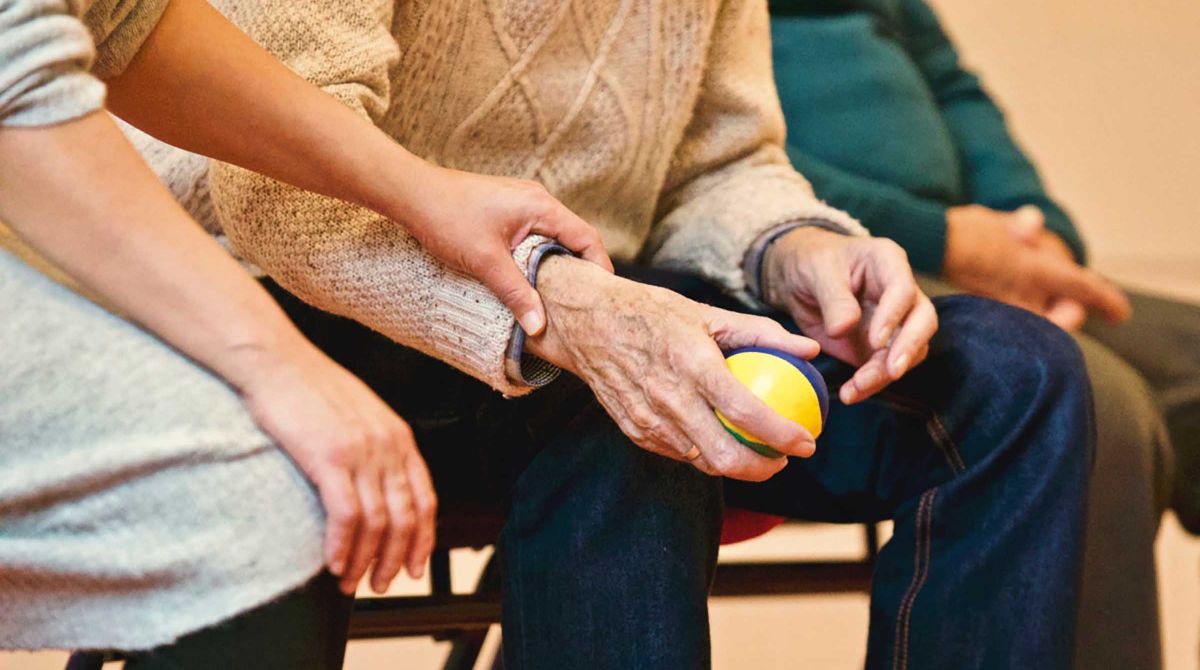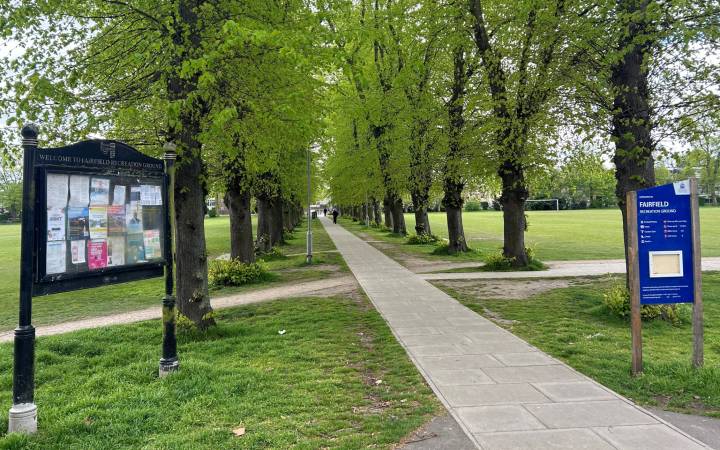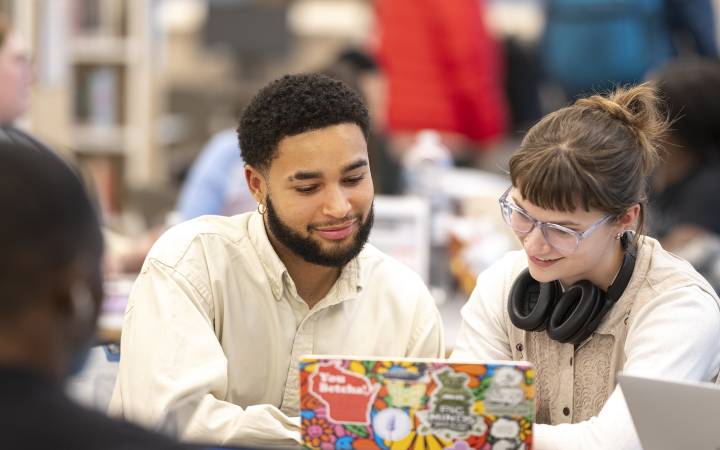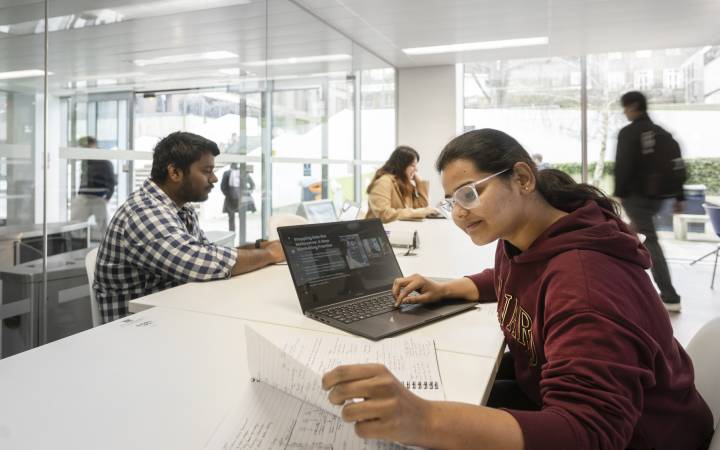Are the UK's carers in crisis? Psychologists, support workers and researchers explore ways to improve support at Kingston University event
Posted Monday 13 January 2020

Around 6.5 million people in the United Kingdom are responsible for caring for loved ones who are older, disabled or seriously ill. It is estimated these unpaid carers save the NHS £136 billion pounds every year, yet alongside the rewards many carers highlight - such as a sense of fulfilment and increased closeness with the person they care for - there are consistent reports of the pressures it places on those doing the caring, including stress, anxiety and debt.
In an effort to explore these issues psychologists, researchers, support workers and carers came together at Kingston University to discuss how to improve support for people with caring responsibilities. Dr Tushna Vandrevala from the University's Faculty of Business and Social Sciences has conducted extensive research with families who care for children with special needs and says the toll it takes is underestimated.
"It seems our carers are in a crisis. One in five of us are likely to be unpaid carers in our lifetime and the statistics regarding mental health are astonishing - nearly 60 to 70 per cent of people with caring responsibilities face difficulties such as anxiety, depression and stress surrounding the caring experience," Dr Vandrevala said.
"We know carers find it incredibly hard to access support service. One of the biggest issues is that many don't see themselves as carers. Often caring for a loved one is seen as a given - just something a parent, wife, husband or child does. However, how easy is it to be both a carer and a partner, for example? These are two very different roles for a person to try and fulfil."
Dr Vandrevala said many people struggle with these binary roles - and while a label such as 'carer' may be helpful to services, it denoted a passivity to the relationship on the part of the care recipient. "It could suggest someone receiving care does not have to do much for that relationship anymore - they are being cared for, while as a partner there were certain roles or responsibilities they were expected to fulfil."
Yet there were also many rewarding aspects of the caring experience that were important to focus on, while considering how to improve support, Dr Vandrevala added. "Our research has shown is that it's not always doom and gloom. Carers do report a closer relationship with the person they're caring for - there is a strong element of resilience and growth in the relationship. We need to look at how we support carers to fulfil what they may see as their obligation while also safeguarding that relationship, so that moving forward they don't experience the negative impacts of caring."
The particular challenges faced by young carers under the age of 18 as well as student carers were highlighted by Daniel Phelps from the University of Winchester and Careum School of Health, Zurich. He said young carers were frequently isolated by their caring responsibilities.
"Young carers are often described as 'hidden'. They don't come with a label and often don't self-identify as carers - it's just something they do," Mr Phelps who runs the website www.youngcarers.info said. "Each young carer and their family has individual circumstances that need tailored support."
Mr Phelps said young carers had the same burdens, stresses, hopes and dreams as other adolescents, but with added responsibilities. "We must listen to them. They are the ones who know what it's like in their homes. The young carers I work with highlight the importance of having opportunities to talk about the issues they are facing, particularly with their peers."
Young people did report positive impacts of the caring experience, including a strengthened bond with the person they care for, learning new life skills such as cooking and managing finances, a more advanced sense of maturity than many of their peers and a high level of resilience. Yet these positives must not eclipse the negative impacts such as strains on relationships, isolation, being bullied more than their peers and being unable to fulfil their potential in education, Mr Phelps added.
Professor Nan Greenwood from the Faculty of Health, Social Care and Education, run jointly by Kingston University and St George's, University of London, examined some of the issues faced by older adult carers - including loneliness, concerns about their declining health and planning for their loved one's future. Her findings also highlighted the rewards of caring such as bringing families together and the sense satisfaction generated from supporting a loved one.
"There is very little research into older carers and the challenges they face. They often do a lot of the heavy lifting when it comes to shouldering the responsibility of caring for their partner as they get older," Professor Greenwood said. "They are very concerned about what will happen when they can no longer care. Many say they can't get health and social care services to talk to them about the future and how their loved one will be cared for if they themselves pass away."
At present there did not seem to be a model of support that took into account the different needs of carers in different circumstances and at different stages of life, yet this more personalised approach was one that needed serious thought, Dr Vandrevala said. Ensuring carers knew where to go for support and encouraging them to recognise their own needs as well as those of the care recipient - alongside finding space for society to celebrate the uplifting and rewarding elements of being a carer - were priorities, she added.
The event was part of a series of conversations about mental health being convened by Kingston University's Faculty of Law, Social and Behavioural Science. The next event, Where do I belong? Identity caught between EU and Brexit, will take place on 22 January.
- Find out more about studying undergraduate and postgraduate courses in psychology at Kingston University.
Contact us
General enquiries:
Journalists only:
- Communications team
Tel: +44 (0)20 8417 3034
Email us



